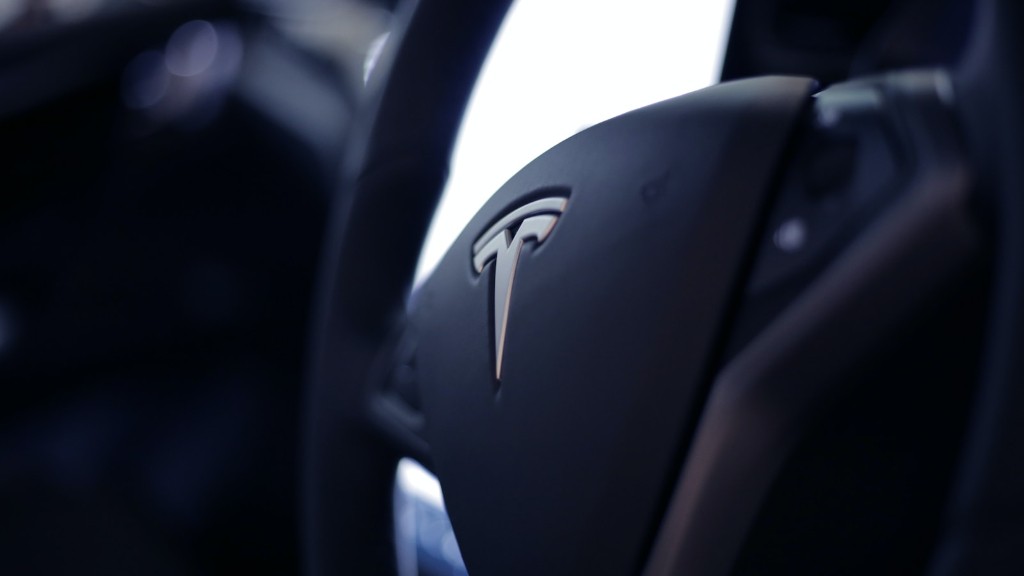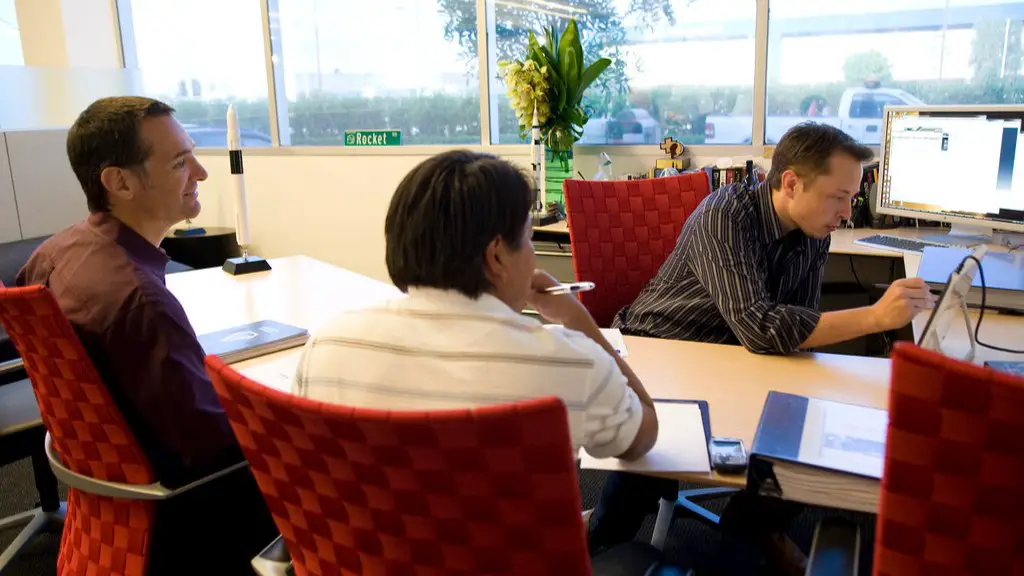What is Elon Musk’s Plan to Own Mars?
Elon Musk, founder and CEO of SpaceX, has a stated goal of making humans an interplanetary species, becoming a multi-planetary species. The primary target of his ambition is Mars. Musk believes that the future of humanity is dependent on making sure that we become a multi-planetary species.
Musk believes that the colonization of Mars is possible and that it could help protect the species from a global catastrophe. According to SpaceX’s plans, colonization of Mars could even be done within the next few decades. Musk hopes to one day be able to send hundreds of people and establish permanent settlements on the Red Planet.
This is no small task. It would require massive amounts of resources and money. One of the biggest problems is the fact that the cost of such a venture would be immense – both in terms of money and resources. It would require a massive amount of energy to power the spacecraft and its systems, as well as the fuel and resources necessary to build the infrastructure and habitats that would be needed.
Musk has come up with a few potential solutions to help make the colonization of Mars a reality. He has proposed a Mars mission that would be powered by reusable rockets, which could reduce the cost of space travel by a significant amount. He has also proposed a plan to produce fuel on Mars by using a process called In-Situ Resource Utilization to create liquid oxygen and methane, which could be used to propel spacecraft. The ISRU process could also be used to create the materials needed to produce habitats and construct other structures on Mars.
Musk has also proposed an ambitious plan to terraform Mars by warming the atmosphere, creating an atmosphere that can potentially sustain life. This would involve specially designed spacecrafts that would be able to capture solar radiation and heat the atmosphere. This ambitious plan has been met with skepticism from some experts, who argue that terraforming the planet could take centuries or even more.
Musk’s plans are ambitious and would require unprecedented amounts of resources and money. However, if his plans come to fruition, he could very well be the first person to own a piece of the Red Planet.
Costs of an Interplanetary Mission
Musk’s plan is incredibly ambitious and is estimated to cost billions of dollars. The exact cost of a mission to Mars is hard to estimate, as a lot of variables would need to be taken into consideration. However, a recent report estimated that the cost of a mission to Mars could be up to $10 billion or more.
Additionally, the estimated costs are just of the mission to Mars, and do not take into account the costs of constructing permanent settlements and other infrastructure on the planet. This could be a significantly higher cost. Additionally, the estimates do not account for the cost of research and development, which would also factor into the cost of the mission.
These costs are also just estimates, and any mission to Mars could cost significantly more due to unforeseen issues and cost overruns. Additionally, the cost of mission to Mars could also be significantly lowered with advances in technology, as well as improved efficiency and cost savings.
Potential Benefits of Colonizing Mars
An interplanetary mission to Mars could have a number of potential benefits. One potential benefit is that it could help to further humanity’s understanding of the universe. It could also potentially lead to the development of new technologies and space exploration techniques.
The colonization of Mars could also have potential economic benefits. Although it would be costly to establish a settlement, it could open the door to the extraction of valuable resources, such as Helium-3, which is a potential source of clean energy. Additionally, the establishment of a permanent settlement on Mars could also open the door to potential opportunities for tourism and other forms of commerce.
The establishment of a settlement on Mars could also benefit NASA, which has long had a policy of sending astronauts on long, dangerous missions into space. By colonizing Mars, NASA could potentially send astronauts on shorter, safer missions, reducing the risk to the astronauts.
Critics of Elon Musk’s Mars Plan
Musk’s plans have been met with skepticism from some experts, who argue that the risks are too great and the potential benefits too few. Some argue that the resources and money that would go into the mission could be better spent elsewhere, including on Earth.
Furthermore, some argue that the risks of the mission are not worth the potential benefits. A mission to Mars could be highly dangerous, and even if it were successful, the cost and effort of sustaining a settlement could be great. Additionally, some argue that the Mars environment is too hostile and that it is unlikely that humans would be able to survive and thrive on the planet for any extended period of time.
Musk’s plans have also been criticized for their ambitious timeline. Some argue that the timeline proposed by Musk is too optimistic, and that in order to successfully colonize Mars it would take significantly longer than he suggests.
Potential Solutions to Colonizing Mars
In order to successfully colonize Mars, a number of potential solutions need to be implemented. There needs to be a significant amount of investment in research and development in order to develop the technologies and infrastructure that would be needed for the mission. Additionally, governments and private companies need to engage in cooperative efforts in order to ensure the success of the mission.
Furthermore, the mission should consider cost-effectiveness and sustainability. Any mission to Mars must take into account the cost of resources, energy, and the cost of missions. Additionally, the mission should strive for sustainability, and any technology or infrastructure should be designed in such a way that it does not harm the environment on Mars.
The mission should also consider the psychological and physical safety of astronauts. Any mission should strive to ensure the safety and wellbeing of astronauts, as they will be spending a significant amount of time in a hostile and dangerous environment.
Is Elon Musk’s Plan Achievable?
Musk’s plans are ambitious, and it is not possible to predict whether they will come to fruition or not. It is clear that the success of a mission to Mars will depend on the right combination of resources, money, technology, and political will.
However, even if Musk’s plans do not come to fruition, his ambitions could potentially lead to advancements in technology and space exploration. His plans could also help to inspire a new generation of space explorers, and potentially bring about a new wave of excitement and interest in space exploration.
Ultimately, whether or not Musk will be able to own a piece of the Red Planet remains to be seen. However, his ambitious plans have certainly sparked a lot of interest and excitement, and are pushing humanity ever closer to its dream of becoming an interplanetary species.
The Impact of Elon Musk’s Plan
Regardless of the outcome of Musk’s plans to colonize Mars, his mission has already had a significant impact on society. His efforts have brought a renewed interest in space exploration, and have driven a wave of investment in space exploration technologies.
Additionally, Musk’s mission has inspired a new generation of scientists and space explorers. His efforts have helped to open up opportunities for young people to pursue careers in space exploration and technology, and have fuelled a wave of innovation and creativity.
Musk’s mission has also shone a light on the importance of investing in space exploration and science. His mission has highlighted the need for governments to invest in space exploration, science, and technology, both for the benefit of humanity and our future.
Pros and Cons of Elon Musk’s Plan
Musk’s plan to send humans to Mars has its share of both pros and cons. On the one hand, his ambitious plans could help to spur innovation in technology and space exploration, leading to potential benefits for humanity. Additionally, his mission could also open up new opportunities for scientists and space explorers, and could potentially lead to the discovery of valuable resources on Mars.
On the other hand, his plans could also be incredibly costly and risky. Any mission to Mars could be incredibly dangerous, and could lead to large costs in terms of money and resources. Additionally, the environment on Mars is hostile, and it is unknown as to whether humans would be able to survive and thrive on the planet for any extended period of time.
Moreover, there is also the issue of ethical and moral considerations when it comes to colonizing Mars. Any mission to Mars would need to take into account the implications of humans travelling and potentially settling on another planet. Additionally, as with any mission, there could also be potential risks to the environment on Mars, and these would need to be carefully taken into consideration.


